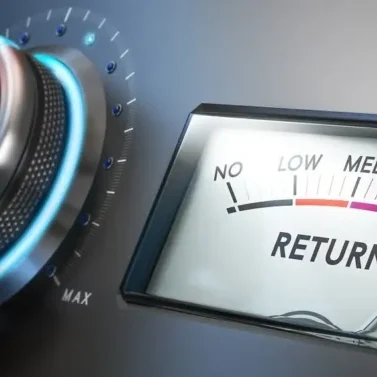Can You Do a Leveraged Buyout with No Money Down?
Summary: Leveraged buyouts are a popular way to finance business acquisitions. Though well-known for their use in large transactions, they are commonly used in smaller acquisitions as well. Thanks to some popular media stories, leveraged buyouts (LBOs) have gained a reputation for financing an acquisition without using your own money. But is this portrayal accurate?
In this article, we discuss:
- What is a leveraged buyout?
- How are LBOs financed?
- Why must buyers contribute funds?
- Are 'no-money-down' transactions available?
- Drawbacks of a 'no money down' transactions
1. What is a leveraged buyout?
A leveraged buyout is a transaction that allows a buyer to acquire a company using a significant amount of borrowed money. LBOs increase potential returns while minimizing the size of the buyer's equity contribution (e.g., downpayment). Transactions that use 70% - 90% financing are usually qualified as 'high leveraged.'
The amount of financing in an acquisition, also known as leverage, varies by transaction type and size. Most transactions require that a portion of the acquisition cost be paid directly by the buyer. This equity contribution is referred to as an 'equity injection.'
Most transactions to acquire large well-known companies often partner buyers with a Private Equity (PE) firm. In these transactions, the PE firms handle the equity injection investment. Smaller transactions, those under 5 million dollars, don't have access to Private Equity. In these acquisitions, the equity injection comes from the buyers themselves.
2. How are leveraged buyouts financed?
The objective of an LBOs is to use as much financing as possible. Buyers look to minimize their equity contribution. The type of financing used for a leveraged buyout varies. Larger opportunities have access to a wider variety of financing options than smaller acquisitions.
Small transactions (up to 5 million)
Acquisitions valued at up to five million dollars are considered small transactions. These transactions are usually financed using a combination of these options:
a) Buyers equity (equity injection)
Buyers often have to put a minimum of 10% of the acquisition's value as an equity injection. The equity injection cannot be financed or come from the seller. Equity injections often come from the buyer's savings, investments, and so on. To learn more, read "Equity injection sources for a business acquisition loan" and "How much money do you need to buy a company?"
b) Seller financing
Sellers often provide financing to buyers as an incentive to do the transaction. This type of financing is usually structured as a term loan. Most sellers offer financing at competitive rates.
c) SBA-backed financing
Most small business LBOs are financed with a Small Business Administration (SBA) backed loan. Note that the SBA does not make these loans directly. Instead, the SBA provides incentives to lenders, who then provide financing to entrepreneurs. This model allows buyers to get a business acquisition loan from lenders with competitive rates and terms.
d) Conventional bank loans
Small business acquisitions are also financed with conventional bank loans. These loans are used when transactions do not qualify for SBA backed financing. Since these loans lack SBA guarantees, they are considerably harder to obtain than SBA-backed options. Buyers need to have impeccable credit and substantial personal collateral.
Larger transactions
Larger transactions often have more alternatives and are substantially more complex than smaller transactions. In cases where the buyers are individuals, such as a management buyout, they seldom put much (if any) equity into the transaction. Managers often partner with PE firms who provide the equity instead. Larger transactions are usually financing using these options:
a) Buyers equity (equity injection)
A PE firm usually provides the equity component of the transaction. If a PE firm is not involved, it comes from a group of investors (e.g., wealthy individuals, family offices, etc.)
b) Seller financing
Seller financing is often used in transactions where a large company spins off a part of the business. In this case, the seller company provides some funding to the buyers as an incentive.
c) Senior financing
Senior financing is often made up of loans from institutions. The term 'senior' means that these loans have a first collateral position on the business assets. Consequently, they are the first to get paid if the assets are liquidated.
d) Subordinate financing
Subordinate financing, sometimes known as mezzanine financing, has a lower security position against the target company's collateral. If the assets need to be liquidated, these lenders get paid after senior lenders have been paid. Subordinate financing can be provided by PE firms and by institutional lenders.
3. Why must buyers put an 'equity injection'?
In most LBO's the buyers have to put an equity injection. This rule applies to LBOs of all sizes. The only difference is that in larger leveraged buyouts, the management team often partners with Private Equity investors to handle the equity injection. There are a few reasons why lenders demand an equity injection:
a) Collateral protection
Lenders finance acquisitions based on their collateral and cash flow. They never finance 100% of an acquisition's assets because there is always a risk that the assets will decrease in value. If lenders financed 100% of a transaction, any decrease in asset value would inevitably lead to a loss.
Consequently, lenders protect their financial position by asking buyers for an equity injection. The equity lowers the lender's risk, allowing lenders to preserve their capital and charge lower rates.
Most lenders ask for a 10% injection, though there are situations where it can go down to 5%. This equity protects lenders for 5% - 10% of the transaction value.
b) Buyers commitment
An equity injection ensures that the buyer is committed to the success of the transaction. By using their own money, they buyer's and lender's best interests become aligned. Let us explain this with an example.
Let's assume a transaction where lenders finance 100% of an acquisition for a buyer. In effect, the lenders buy an asset (the business) and give it to the buyer. After the transaction concludes, the lenders hope the buyer will preserve/increase the business's value.
In this scenario, what prevents a buyer from making very risky decisions that could run the company into the ground? After all, none of their own money is at play. They have nothing to risk.
However, there are other issues. Let's assume that the business losses value due to market conditions. What is the buyer's incentive to keep the business, rather than walking away from it? Since the buyer has no money in the deal, they could hand the assets to the lender and move on. This scenario leaves the lender stuck with a company that is in trouble.
Without an equity injection from the buyer, the lender bears all the risk and only a small reward. From a lender's perspective, supporting 100% of a deal does not make sense.
4. What type of business can you buy with no money down?
Some businesses can be bought with 'no money down.' This situation is possible in two scenarios:
Additional resource: "Can I Get a Business Acquisition Loan with No Collateral?"
a) Asking price is lower than asset value
In principle, a buyer can acquire a business with 'no money down' if the seller's asking price is lower than the value of the company's assets. For this strategy to work, the seller has to sell the company for 90% of the assets value (or less).
This scenario opens an important question. Why would an owner sell their company at a price that is well below the asset value? Aside from family-related transactions (e.g., sales from parents to their children), the only other reasons involve companies facing severe problems.
b) Seller offers 100% financing
Another way to buy a business with 'no money down' is to get the seller to provide 100% financing. This situation avoids using commercial lenders and sidesteps their qualification requirements. While there are some sellers willing to offer 100% financing, a buyer must ask themselves if it's a good transaction.
Why would a seller be willing to finance 100% of a sale? It does not leave the seller in a good position. Effectively, the seller keeps all the risk. There are a few reasons why this could happen. The most common reasons are that the owner is selling a business that:
- Has problems (or)
- Cannot be financed through conventional lenders (or)
- Cannot find buyers interested in buying it with normal terms
5. Are there disadvantages to buying with no money down?
Is a leveraged buyout with no money down a good idea? It depends. It can be a great idea if you find a great company that is substantially undervalued. They can also work well if you find a great company with a seller willing to offer 100% financing at reasonable terms. Realistically, transactions like this are very rare.
The reality is that a company that can be acquired with no equity injection is likely to be very troubled. Due to the risk, these transactions should be considered only by individuals with substantial industry experience and turnaround knowledge. Otherwise, you could end up acquiring someone else's problems.
Editor's note:
This information should not be considered legal or financial advice. Given the complexity of business acquisitions, this document is not guaranteed to be 100% accurate or cover every potential option. However, we make every effort to provide you with the best information. If you have comments, suggestions, or improvements, contact us via LinkedIn.






